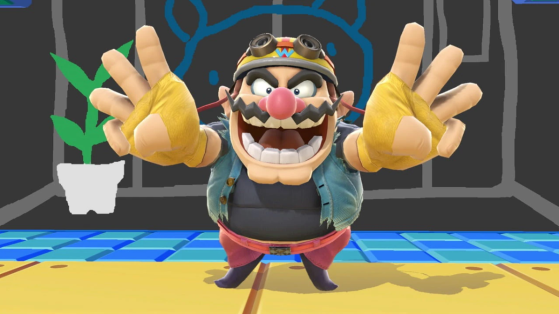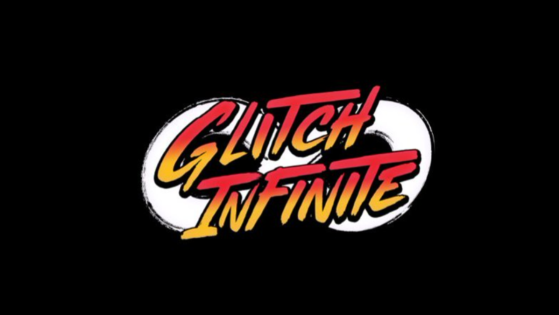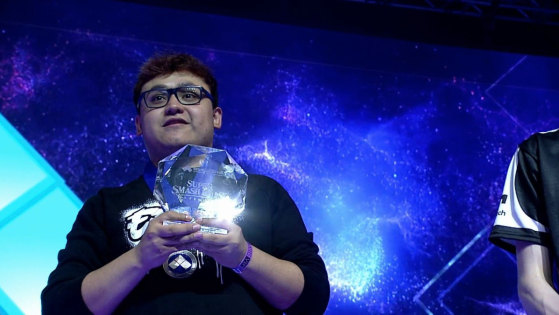It all started with a tweet, as is often the case in community debates. The person expressed his surprise regarding certain encouragements, which he assimilated to coaching. It was enough for a debate to be launched, which quickly went beyond the basic problem.
The difference between encouragement and coaching
For those who are unfamiliar with the different scenes of fighting games, know that it is not uncommon for players and spectators to be separated by only a few meters, and therefore within earshot even without the public having to scream. The first part consists of differentiating between encouragement and coaching. It’s obvious that phrases like “You’re the best!” “Let’s go, Gluto/Raflow/Toto” etc, are not strictly speaking coaching. However, they can sometimes have a negative impact on some players, who find it difficult to concentrate when 50 people encourage their opponent while they have no support. A player testified by saying that during one of his first tournaments, he was winning against a more famous player, and that a person exclaimed: “Yes xxx is being beaten by a noob “which distracted him. It is not certain that this sentence was pronounced in order to distract the player, but the awkward wording, undoubtedly due to the excitement of the moment, made him lose his abilities. After knowing how to be impervious to pressure is also a quality required to perform offline, because after all the public has the right to express themselves provided they respect the participants.
On the other hand, some encouragement can quickly become advice, and the border at this level can very quickly become blurred. If this is obvious for some of them (Be careful, his fart is loaded! against Glutonny for example), others, more generic at first glance, have the possibility of changing the course of a set (Watch out for time / Stop stuffing etc…). Although they are sometimes given under the influence of emotion, by spectators who experience the match as if the controller were in their hands, they can help a player to become aware of certain things that he would not have noticed. , because of his focus on other aspects of the game. The relevance of the advice does not come into account, because the adversary can just as much be disturbed. This imposes an additional mindgame (will the player follow this recommendation? Will the opponent play differently?), and brings in a third person in a confrontation supposed to be a 1v1. The community remains quite divided on this subject, some defending the fact that it is part of the offline, while another portion assimilates it purely and simply to anti-gaming.
Is coaching during a set a good thing?
The tradition of fighting games is that it is forbidden to coach a player during a set, especially if the observer proves to be very competent in the field. With a fair analysis, it is possible to easily adapt his game plan, and to find solutions thanks to the more neutral outside view, while the player is focused on his set. With the professionalization of esports, this debate could be revived, especially since live coaching is authorized on other games (not fighting games, where technical information is generally prohibited). Some even take the example of certain sports where coaches are allowed to speak during the action. An evolution in this direction could therefore appear in the FGC.
If this option may seem attractive for the professionalization of esport Smash or FGC, in the long term it could create even more inequalities. Today, sponsored players still have an advantage over ordinary mortals. This is not due to their seeding, which generally depends on their results and not on the sponsor, but rather on the level of management. In the biggest structures, they can have access to mental trainers, nutritionists and other coaches, who can help them approach a tournament in optimal conditions. In addition, these players have the opportunity to travel around the world, to face the best competitors from other nations, and therefore to progress faster than a person “blocked” in his city/village, who can only be one. or two big national events per year for budgetary reasons (let us specify all the same that France is not the most to be pitied in this domain, thanks to the incredible work of the TOs on Smash, and other fighting games. Thanks to them). To add a competent coach on top would be to ask the challenger to face two brains at the same time, which would greatly complicate his task. Open tournaments are one of the strengths of the FGC, allowing everyone to face their idols and progress. For these tournaments to remain interesting, it is necessary to ensure a certain equality of chancesand live coaching would probably go against this ideal.



